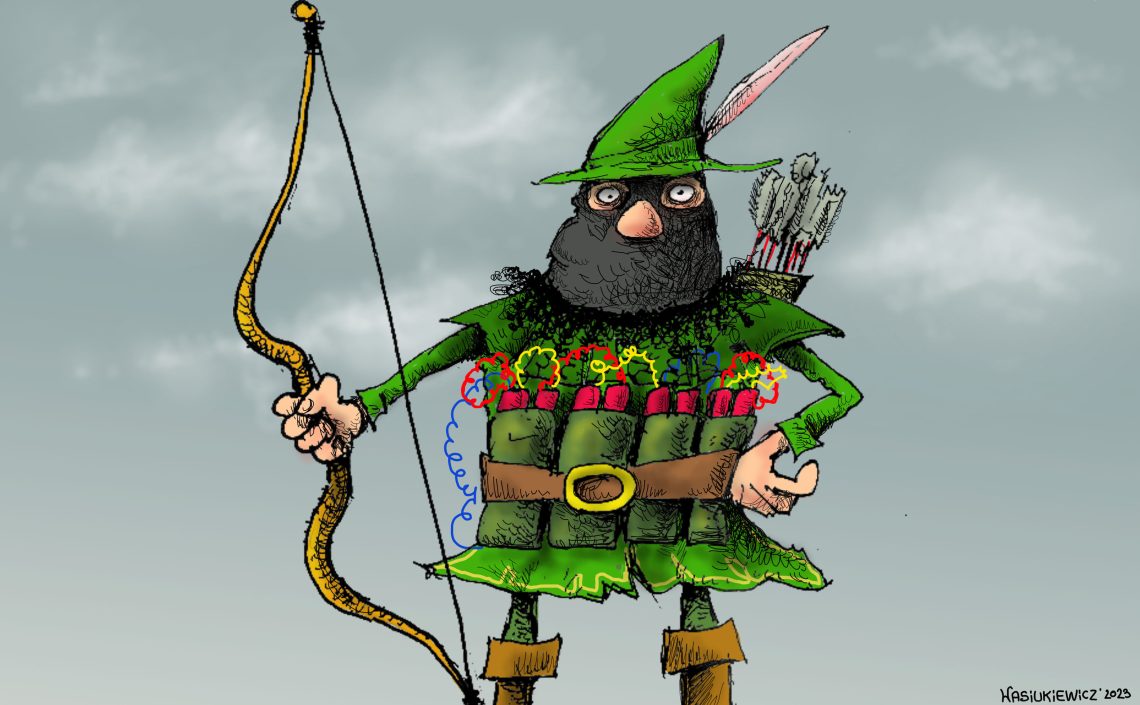Zero tolerance for terrorism and its supporters
Anti-Israeli riots in Europe expose broken priorities regarding security, migration and criminality.

Following Israel’s initial response to the brutal Hamas attack of October 7, aggressive anti-Israeli riots erupted around the world and persisted for several days. The violence was particularly evident in Berlin, London and throughout France. Those involved in the disturbances seemingly disregarded the fact that Israeli civilians were victims of horrific atrocities, which forced the country’s armed forces to strike at terrorists in Gaza.
In Europe, anti-Semitic threats mainly originate from immigrants. This alarming trend has understandably left Europe’s Jewish population feeling threatened and in need of special protection. It is imperative to stop indiscriminate Israel-bashing and instead join forces with the country to combat terrorism.
Anti-Semitism is not the sole security issue stemming from migration – and the problems cannot solely be attributed to inadequate border control. The causes also extend to internal challenges in preventing, surveilling and prosecuting criminal immigrants.
Sweden’s fall
This month, two Swedish individuals were tragically gunned down by a Tunisian national who had resided in Europe for over a decade. Despite a history of being recognized as dangerous and involved in criminal activities in both Italy and Sweden, he was allowed to remain in the Schengen area. While discussing criminal activity among non-European immigrants may not be politically correct, it remains a real concern.
Sweden serves as a striking example. In 2015, like Germany with its Willkommenskultur (“welcoming culture” – a byword for assisting millions of migrants), Sweden opened its borders. The country welcomed 160,000 immigrants who were provided housing in suburban areas. Regrettably, a significant number of these newcomers have resisted efforts to integrate. Consequently, Sweden, once regarded as one of the safest nations in the world, now grapples with heightened criminality, insecurity and a notable increase in organized crime.
Numerous European cities, including those in France and Germany, have experienced increased insecurity, particularly for women. Poland and Hungary faced criticism for their reluctance to accept non-European migrants and were singled out for their perceived lack of solidarity. Nevertheless, it is worth noting that cities like Warsaw and Budapest remain safe even at night, a claim that cannot be made for most of their Western European counterparts. Furthermore, both Hungary and especially Poland have exhibited generosity in helping Ukrainian refugees.
Twisted logic
The roots of this issue may be traced back to the protests of 1968, after which European leftists began to adopt anti-Israel stances. The logic among some – especially in Germany – was twisted: they believed that leftist politics simply could not be considered anti-Semitic. This shift resulted in mainstream media often presenting a highly critical view of Israel. It also led governments to financially support Palestinian organizations. Oversight of this spending was often lacking, a practice that would be deemed unacceptable in the business realm. Perhaps these actions were initially driven by naivety, but interestingly, the German federal government, only convinced to do so after the October 7 attack, decided to halt such support.
In Europe, overarching moralizing principles have led to a lenient stance on migrants. While we certainly do not wish for anyone to drown in the Mediterranean, the ongoing rescue operations there inadvertently create an incentive for illegal immigration, bolstering the initial lure of welfare benefits. Once migrants are picked up by rescue boats, their journey continues safely. If we really want to talk about solidarity, we should consider the impact these rescue operations have on Italy. Recently, the German government also ceased financing these activities.
Tolerance of terrorism – as long as it is far away – is widespread around the world and is becoming increasingly prevalent in Europe.
Law enforcement agencies find themselves in a challenging position. Implementing necessary, firm measures against criminal immigrants has become increasingly risky. Media and political discourse tend to be protective of non-Europeans, which complicates an officer’s role. The German minister of internal affairs, responsible for internal security, even went so far as to suggest dropping the presumption of innocence for police officers. In the event of a complaint, the burden of proof would lie with the officer, rather than the claimant. This atmosphere hampers the police’s ability to combat crime effectively, allowing individuals like the Brussels gunman to operate with relative impunity.
Some German politicians have recently said that this instability runs the risk of boosting support for the populist right. While that is true, a crucial clarification is necessary: More measures should be taken to ensure people’s safety, not to block right-wing movements. Emphasizing the latter over the former reflects a lack of responsibility, suggesting that the security of citizens might be less crucial than securing electoral majorities. This sentiment is prevalent not only on the European left but regrettably also within the democratic center.
We can hope that the current situation will prompt concrete actions to strengthen border control and fight crime. Politicians in Brussels seem to be focused on the distribution of immigrants in Europe via quotas – a technocratic maneuver that is far from any real solution.
Tolerance of terrorism – as long as it is far away – is widespread around the world and is becoming increasingly prevalent in Europe. It must end. The romanticized view of “good terrorists,” akin to modern-day Robin Hoods, needs to be dispelled.

